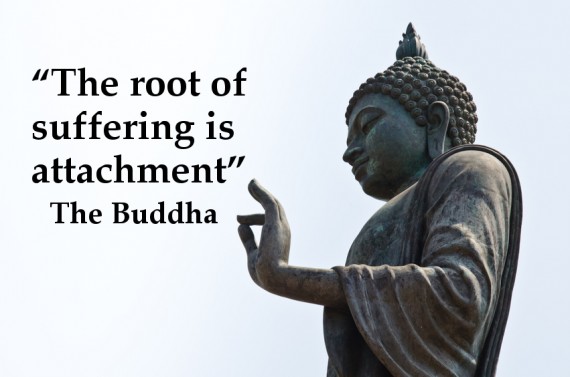Me: Hello, Jamie Butler.
Jamie: Hello, Elisa Medhus.
Me: Hello, Erik Rune Medhus.
Erik (laughing): Hello, Mother.
Me: How are you doing, sweetie? I love you!
Erik: I love you, too.
Me: I miss you.
Jamie (looking up and to her right): He’s standing to the side, today.
Erik: Don’t miss me so much!
Me: I won’t.
Erik: I’m with you all the time.
Me: I know, and I feel your goosebumps, so that’s awesome. So, we’re going to talk about a very cheerful subject and that’s suffering.
Jamie laughs.
Me: All of us suffer to some degree. That’s the human experience, but why do we suffer?
Jamie (smiling): Erik, why do we suffer?
Me: Give us the lowdown.
Erik: Hello to everybody who’s watching. If you want to talk about suffering, then you need to talk about the contract that you signed when you came in to be human. In this three-dimensional world, we have this concept of (air quotes) time, and we have this linear understanding of so many things, not just linear time, but also of emotions. Like, to have joy, you have to understand suffering. To understand abundance, you have to understand having nothing. Everything has a white and black perspective in the linear. One without the other doesn’t exist. How can you have one side of a coin, right?
Me: That’s true, and you couldn’t have cause and effect. “I did this and it caused that in my life.” So that’s very linear, and that’s probably important for the human experience, but you can tell me that.
Erik: No, it’s so important! That’s why we come here because in our world, when you get out of this one, you don’t have linear concepts. You don’t have to have both sides of the coin to make the coin. It’s almost required to pretend a bit when you’re in our space. I mean, if you’re human trying to understand where I am right now, you gotta pretend that it’s just that way, because you don’t have the proof, the tangible to say, “That can absolutely happen, and that’s real.” What you’ve based your existence on—I’m just saying you, in general—is that when you were little, what you were taught growing up what was hot and what was cold, what was dangerous and what was not. We were taught one way and another. Then we created this concept that one is acceptable or good and one is not. So when you’re suffering, you see it as a travesty.
Jamie stumbles on the word.
Jamie (chuckling): I thought he said, “tragedy” and pronounced it wrong.
I chuckle.
Jamie: My bad.
Erik: You say, “Oh, I’m so sorry that you’re suffering” like it’s this negative experience, but in the act of suffering, you understand so many positive things about yourself: your strength, your perseverance. You understand what your needs really are. Obviously, they weren’t what you thought they were because here you are in the mode of suffering! You needed something; you didn’t get it, and then you therefore fall into suffering. It gets you to look at your emotional value as well. Do you like suffering? Some people, once they get into that emotion, they don’t even get out of it.
Me: I do not like it. No, I’m not having any of it! But yeah, I know there are a lot of people who like to stay stuck in the victim mode.
Erik: The victim mode. Yeah, that’s it. Suffering is a huge part of the victim mode.
Me: Yeah, because they get sympathy and things of that nature.
Jamie slowly turns her head to Erik with a look of disbelief.
Me: What?
Jamie: You know, I’m working from my house today, and I have my cats with me, and my cats are actually standing where Erik is standing.
Me: Oh really?
Jamie: A cat just walked around him. It’s so messy. I’d be so embarrassed to show everybody. My cat climbed the piano and got up to where Erik is standing.
Me: I could carry my computer around and show you my god-awful mess throughout the house, but… We cooked chicken fingers yesterday, and it’s still not all cleaned up, the deep fryer and all that stuff. It’s horrible.
Weird digression. It happens.
Me: How can people learn to, I don’t know if I want to say, “tolerate” or “enjoy”—not suffer so much under suffering.
Jamie: Oh, he’s so excited.
Erik: Use “enjoy.” How do you enjoy suffering?
Me: Okay, yeah.
Erik: Even you roll your eyes.
Me: I know! I just can’t imagine!
Erik: It’s true. Once you’re in the act of suffering, so you’re longing for and not getting what you need, you stay in the moment—in the true sense of Now, not the bullshit of, “Oh, poor me. In the past, they said that about me,” or “What if? What if?” When you do that, you’re throwing energy in directions that don’t even exist.
Me: Okay.
Erik: Okay, so you’re truly in the Now, and you’re looking at why you’re suffering. If you do that, you can enjoy the process of figuring out what you really need to be doing.
Me: And you can reap the lessons from it? You can search for the lesson in your suffering? Is that it?
Erik: You could search for the lesson, but you wouldn’t have to search very far. One thing I like about suffering—
Jamie: Okay, that sounded really weird.
(Pause)
Jamie (chuckling to Erik): I know. Okay.
Erik: One thing I like about suffering is that you’re close to the bottom of the barrel. There are a lot of the thick things that could take you away from your focus, your life. A lot of it’s already cleared out, and it’s a very, almost single focus experience.
Me: That’s true.
When you’re suffering, you usually don’t focus on much else.
Erik: You can only see yourself. You only look at you and what you don’t have and what’s going wrong. So you’re in a little vicious cycle, and it’s all here—
Jamie mimics Erik pointing to his forehead.
Erik: –instead of what’s going on externally. That’s what I really enjoy about suffering. It takes a lot of the weeds out. What I don’t enjoy is when people get stuck in the vicious cycle or, like you said, the victim pattern, and because we’re survivors, we start to see the benefit of that. We think we should stay in that because we get special attention from people or we get help when we get lazy or we don’t want to do something. We mislabel people’s help for love so we’re not really authentic with everything.
Me: Maybe they just don’t know how to get out of it. Maybe they want to but they just don’t know how.
(Pause)
Jamie (a little timidly): Oh, Erik’s calling bullshit.
She giggles nervously.
Me: Go ahead. Call my bullshit.
Erik: Mom, I feel that everybody knows their answer. It’s just about whether you’re willing to listen or not.
Me: Ah, you have to listen to yourself. You have to be emotionally honest with yourself. Is that what you’re saying?
Erik: Yes.
Jamie: He said it very firmly. “Yes.”
(Long pause)
Erik: Ding?
Jamie: It’s like, “Are we done?”
Me: No, let’s walk through a specific example of somebody suffering.
That example coming to a blog near you!
Here’s another review for Erik’s book, My Life After Death:
A life-altering book. Eric gives the world this gift: his description, in (oftentimes colorful) easy to understand language, of life after death. Suffering from severe bipolar disease, Eric Medhus took his own life at the young age of 20. Translated by Channeler, Jamie Butler, Eric speaks to us from the other side. No matter what your current beliefs are, you’ll learn something from this insightful, intelligent, and loving read.
–Suzanne
Go online or to your neighborhood bookstore and buy your copy now.




